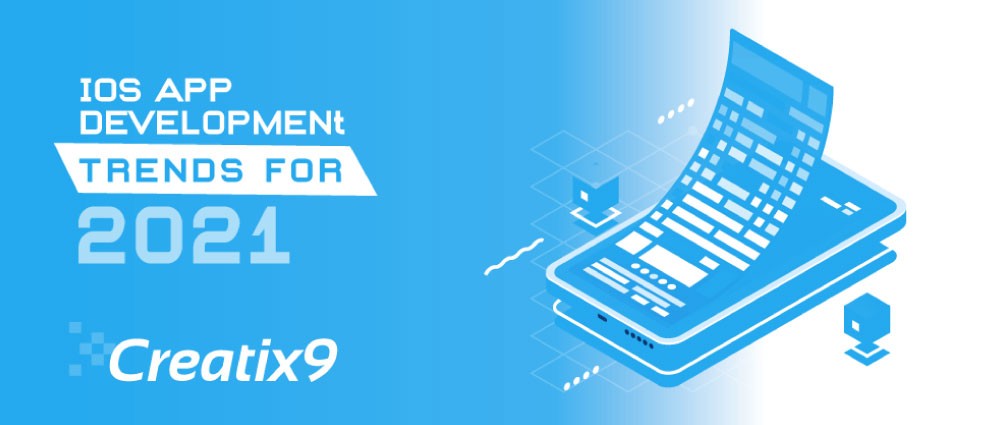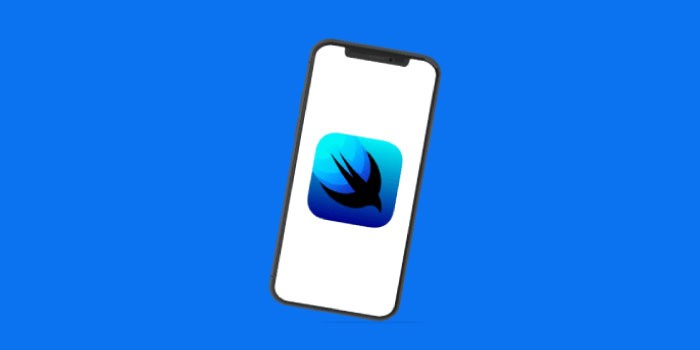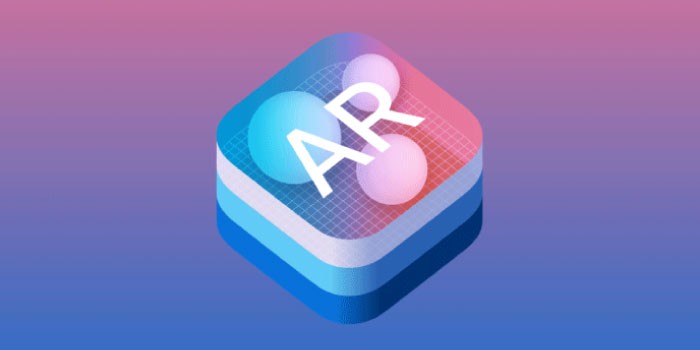
If you are an aspiring iOS developer, or even a veteran in the field, then you might be wondering about the trends that might be dominating the iOS app development field. Nowadays there are two major development environments which dominate the mobile device world, and they are Android by Google, and iOS by Apple. Now android is an open-source OS used by a large variety of smartphones and other smart device manufacturers, but iOS is a proprietary operating system exclusively used by Apple devices.
Since its inception, when the first iPhone was launched in 2008, and swept the world into the current craze for smart mobile devices, the users of the smartphone only had approximately 500 apps available on the Apple App Store. That was because at the time, no one knew about the feasibility and reliability, as well as the extent of adaptability that the platform might show, so the number of developers who developed iOS apps was quite small. About a decade later, and with about as many updates to the iPhone and the operating system, official sources suggest that by the year 2018, there were over 20 million active iOS developers around the world who earn a combined approximate of $100 billion while they look after the needs of the hundreds of millions of App Store visitors in a week. The numbers stated in this statement truly boggle the minds, yet they are true. And by this year 2020, these numbers have reached even higher.
Now if you think that these numbers are impressive, think about the numbers for the android platform, which has a far larger user base, as well as a bigger pool of developers. All we can say right now is that we can all agree that android and iOS combined will be ruling the mobile platform world for the foreseeable future. That can be seen by the sheer number of developers for both these platforms, as well as the number of apps and tools that have been developed and are being developed for these platforms. iOS alone has over two million apps currently active on the App Store, and there are a lot of developers who are currently invested in the maintenance and support of these apps. Thus to them, these platforms are of the utmost importance, and by extension, the trends that are dominating them. It has become all the more important to know these trends, as with so many apps currently present, any iOS app developer needs something that will make their app stand out from the multitude of apps that are providing the same features and functions. And that is where these trends come in.
So now that we know why knowing these trends is important, let’s look at some of these trends, which are popular in 2020. While it’s not necessary to follow each trend in the app development, it is necessary to at least know them, so that you can properly decide which trend is actually beneficial for your app.
Top Trends for iOS App Development in 2020:
Let’s look at some of the top trends of this year, which look like they are here to stay.
-
SwiftUI Toolkit

The most important trend this year is the increasing use of the SwiftUI. This is a toolkit that has been designed to help developers develop user interfaces of their apps, that is completely derivative. Now, if you are a newcomer, you must know that declarative UI’s opposite is imperative UI, which is the most common way to create user interfaces. In an imperative UI, developers need to write code that will constantly track the state of the app being used, and then write functions that will change the UI to the state that is relevant to the actions of the user. This requires much fine-tuning, and therefore requires a lot of time.
Now declarative UI on the other hand, is far simpler. As a developer, you just need to inform it about all the possible states in the apps, and the declarative UI will automatically monitor and change the state as per the user’s actions, without having the developer write the code that shifts each state to other possible state options accordingly.
To simplify, instead of stating each action specifically, we just inform the UI of the “rules” that we have set, and let it handle the rest of it. And another factor in its favour, it works the same across all Apple platforms, like iOS, iPadOS, macOS etc.
-
ARKit

One of the more important trends this year is the use of AR or augmented reality into iOS app development. ARKit is one of the most widely used augmented reality platforms globally. For those looking to develop an iOS app with the capability of leveraging AR, then the ARKit 3 Reality Composer is a must-have for them. Pairing that with the high-level AR framework called RealityKit, will result in a truly spectacular iOS app that makes use of augmented reality in the best and easiest way possible.
Some of the interesting features that ARKit 3 offers, include the People Occlusion feature. This feature allows the apps that use this feature to figure out where people, as well as AR object markers are placed, and then adjust the occlusion of those objects accordingly. Another feature, called the Motion Capture feature works in tandem with the previous feature, and accurately tracks the movement by people walking or moving across the screen, as input for the AR application’s scene setting.
These, and much more is offered in the new toolkit, which can help development teams at nay IOS app Developer Company create new and innovative apps that can properly leverage the potential of many new technologies to their benefit.
-
Flutter

Flutter is a great trend to become famous in the past few years, and it has slowly but increasingly getting more and more developers interested in it. The reason it is so interesting is because it allows us to develop apps that have almost all of the advantages of developing an app for the native platform, while being a cross-platform. That means that those opting to get an app developed with Flutter can have the best of both worlds, while having a quicker time to market, as well as a lower cost than if they had opted for a native app.
Previously, it was just compatible with products by Google, so it was mainly used by those looking to develop for android and Chrome operating systems. But when Flutter added support for iOS, and became a cross-platform environment, that’s when it started getting more popular. Since its support for iOS started, an increasing number of developers are getting into it day by day.
While Flutter is built using the programming language Dart, which is Google’s proprietary programming language, the code can easily compile to the iOS native code. That makes it easy to develop iOS apps using Flutter, and with support for android and chrome, it becomes a true cross-platform app.
We have seen many new trends take root in 2020, in our personal lifestyles as well as our professional lifestyles. The same is true for the world of iOS app development, and the general mobile development app development world.
The Flutter language is becoming more and more popular with developers, and with the introduction of new toolkits and development libraries, developers are finding it easier to develop apps that can integrate with Internet of Things systems, as well as augmented reality technology. And this year is about to end, and we will soon be seeing new trends dominate the app development scene. How many of these trends will be here, only time will tell.
If you are on the lookout for a reliable app development company or an iOS app marketing services provider, then look no further than the people at Creatix9. Their expert teams of developers and market specialists are experts in the process, from development to successful market launches. So why wait? Give them a call now.
Also Read: Everything You Should Know About the Apple App Store

